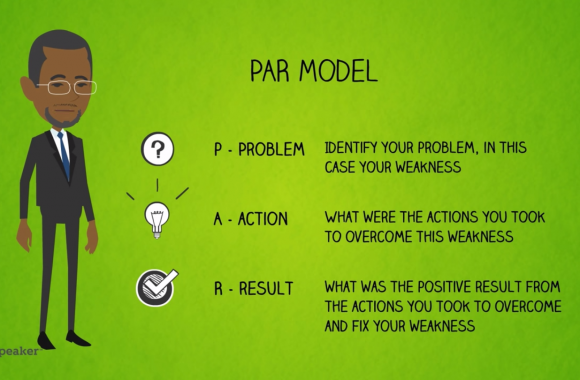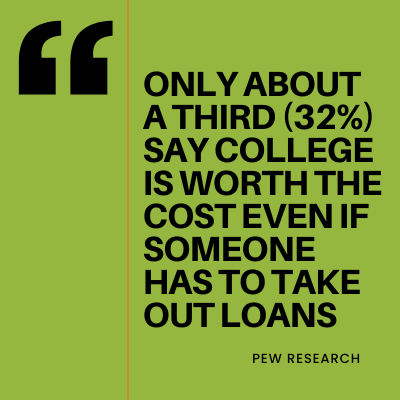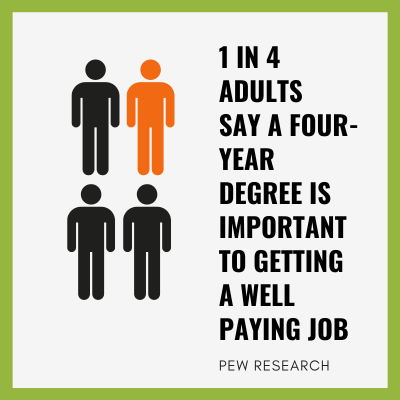Of course, “What is your greatest weakness?” question usually comes at the same time. You should be prepared to answer this question as well.. Thinking about your strengths might be easier than your weakness, but if you answer this question properly, you can show your self-awareness and your work ethic.
One common pitfall to this question is to turning strength to weakness.
“My greatest weakness is that I am a perfectionist. I just want all my work to be perfect! So sometimes projects and tasks could take me longer than they should.”
Does it sound like sincere answer to you? Probably not.
It is possible to turn your strength into weakness, but interviewers can tell if it is not original and genuine. To build a solid, strong answer, use the PAR model as a guide and tell the story of how you overcame your weakness.
The PAR Model:
Problem
Identify your weakness
Action
What actions did/are you took/taking in order to overcome the weakness
Result
What was the positive result that you got?
By following the PAR model, you can show your initiative to overcome a weakness, and a hiring manager can see your ability to learn and grow. Rather than just turning your strength into a weakness, this gives much more depth to your answer. For example, an effective answer looks like this:
“I used to have problem with public speaking (Problem Identified). However in order to overcome this I signed up for a class in public speaking and speech writing, as well as a course in professional development while working towards my degree (Action taken). I am now able to confidently give presentations to large groups, and it has also made me more effective communicator (positive Result)”
Watch the video to learn more.
Don’t forget to subscribe our YouTube Channel!


